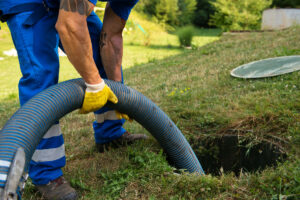What Is Hard Water and How Does It Affect You
-
 By
Ava Thompson
By
Ava Thompson

What is hard water? How does it differ from soft water?
In this article, we will be explaining what hard water is, how it forms, how to measure it, its effects on your home and health, and ways to manage it.
Table of Contents
ToggleUnderstanding Hard Water
Hard water is water that contains high levels of calcium and magnesium. While these minerals are not harmful per se, they can cause a range of issues in household systems and appliances.
For one thing, they interact differently with soaps, pipes, appliances, as well as our bodies.
How Hard Water Forms
Hard water begins as soft rainwater. As this rainwater travels through the ground, it picks up minerals like calcium and magnesium carbonates.

As the water continues its journey, it absorbs more minerals, contributing to the overall hardness.
The water’s mineral content is further influenced by how it interacts with different rock formations. As it passes through these geological layers, it picks up various dissolved minerals, including calcium and bicarbonate ions.
Measuring Water Hardness
Water hardness is typically measured in grains per gallon (GPG). It can also be measured in PPM (parts per million) or mg/L (milligrams per liter). For context, one GPG is roughly equivalent to 17.1 ppm.
Water hardness levels, also known as total hardness, are classified as follows:
- Slightly hard: 17.1 to 60 mg/L
- Moderately hard: 60 to 120 mg/L
- Hard: 120 to 180 mg/L
- Very hard: over 180 mg/L
Temporary hard water, which contains primarily calcium and bicarbonate ions, can be softened by boiling.
However, permanent hard water, which includes sulfate ions, cannot be softened this way.
Effects of Hard Water on Household Systems
Hard water can wreak havoc on household systems through scale buildup – a hard, crusty deposit that forms inside pipes and plumbing fixtures.

Over time, this buildup will narrow the pipe diameter, leading to slow drains and reduced water pressure. Left untreated, the scale can cause total blockages, resulting in plumbing backups and costly repairs.
Soap Scum and Cleaning Challenges
One of the most noticeable effects of hard water is its interaction with soap, which results in a sticky soap curd or scum-like substance.
Soap scum will not only reduce the cleaning efficiency of soap, but it can also lead to the formation of scum rings in bathtubs and deposits on various surfaces.
For example soap scum deposits can be found on dishes, bathtubs, showers, and other water fixtures.
Impact on House Appliances
The efficiency and lifespan of appliances such as dishwashers and washing machines are also reduced by hard water.
For example, scale buildup in these appliances can lead to poor water circulation, unsightly spots on dishes, and clogged water inlet valves.
Fortunately, there are products that are designed to remove these buildups such as ACTIVE Dishwasher Cleaner and ACTIVE Washing Machine Cleaner.
Using ACTIVE Dishwasher Cleaner
ACTIVE Dishwasher Cleaner Tablets feature a deep descaling formula that will remove limescale deposits, in addition to grime and grease.
Step 1: Empty the Dishwasher

Remove everything from the dishwasher before starting. The racks and trays should be empty.
Step 2: Add an ACTIVE Tablet

Remove the wrapper from one ACTIVE tablet and place it in the detergent dispenser tray.
Step 3: Run the Dishwasher

Run a normal wash cycle.
Step 4: Let It Air Dry

Once the cycle is finished, leave the dishwasher door open and let it air dry.
Supply:
- ACTIVE Dishwasher Cleaner Tablets
Heavily soiled dishwashers may require another wash cycle with a second ACTIVE tablet.
ACTIVE Dishwasher Cleaner
Removes hard water stains and restores the shine inside your dishwasher.

15% Off Your Order on Amazon
×Click below to reveal the 15% off coupon for your entire ACTIVE purchase on Amazon.com
Using ACTIVE Washing Machine Cleaner
ACTIVE Washing Machine Cleaner Tablets will not only break down hard water build up but they’ll also eliminate grime and odors.
Supplies:
- ACTIVE Washing Machine Cleaner
- Damp Cloth
Step 1:
Ensure the washing machine is empty before you start cleaning.

Step 2:
Place one ACTIVE Washing Machine Cleaner Tablet directly into the drum. Do not add it to the detergent drawer.

Step 3:
Run a normal wash cycle with hot water. If possible, choose the largest load size setting.

Step 4:
Once the cycle is finished, wipe away any remaining residue from the washer drum using a damp cloth.
Don’t forget to clean the area behind the rubber seal as well.

Health Implications of Hard Water
Drinking hard water can help you reach the recommended daily intake of calcium and magnesium.
These minerals are essential for various bodily functions, including bone health and muscle function.
There is even some speculation that drinking hard water may have cardiovascular benefits, though these claims have not been definitively proven.
Regional Variations in Water Hardness
Drinking water hardness varies significantly by region as it’s influenced by local geology and water sources, as well as calcium and magnesium concentrations.
For instance, the median water hardness across the UK ranges from 16.02 mg/L to 331.50 mg/L, measured in calcium carbonate equivalent.
In England, tap water is significantly harder compared to Scotland, with median hardness values of 192.90 mg/L and 32.87 mg/L as CaCO3 equivalent, respectively.
This difference is due to the varying geological formations that water passes through before reaching taps.
Solutions for Managing Hard Water
Water softening systems use ion exchange to remove calcium and magnesium ions. They work by replacing the minerals with sodium or potassium ions, which results in softer water.

Citric acid is another solution; it works by chelating minerals, rendering them soluble, which helps prevent scale buildup.
Whole house water filtration systems can also be effective, not only softening water but reducing common contaminants like chlorine.
Water Softening Techniques
Reverse osmosis is another water softening method, which works by forcing water through a semi-permeable membrane. This process removes hardness minerals and provides pure water suitable for drinking and household use.
Understanding Hard Water
While hard water presents various challenges, it also offers some health benefits. By staying informed and proactive, you’ll be able to manage hard water effectively, enhancing your quality of life and protecting your household systems.
Key Takeaways
- Hard water contains high levels of calcium and magnesium, which can lead to scale buildup in pipes and appliances, reducing their efficiency and lifespan
- Water hardness is caused by rainwater traveling through the ground and absorbing minerals
- Managing hard water involves using water softening techniques (e.g. using a water softener, citric acid chelation, whole house filtration systems)
Frequently Asked Questions
What is hard water?
Hard water refers to water that contains high levels of calcium and magnesium ions, which can lead to problems in household systems and appliances.
How does hard water form?
Hard water forms when rainwater absorbs minerals like calcium and magnesium carbonates as it travels through rocks and soil. This process leads to the accumulation of minerals in the water.
Is hard water bad for my health?
No, hard water is not bad for your health and can actually be a source of calcium and magnesium for your body.
How can I measure water hardness?
To measure water hardness, you can use units such as grains per gallon (gpg), parts per million (ppm), or milligrams per liter (mg/L). Refer to the classifications for different levels of hardness.
What can I do to manage hard water?
To manage hard water, consider using a water softener (i.e. ion exchange and reverse osmosis). Preventative measures can also help reduce scale buildup.
SAVE
15% off
Your Next ACTIVE
Purchase on Amazon
15% Off Your Order on Amazon
×Click below to reveal the 15% off coupon for your entire ACTIVE purchase on Amazon.com
Limited Time Offer




